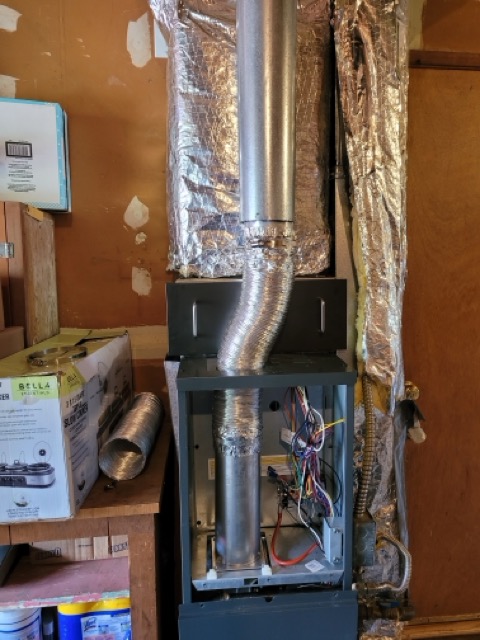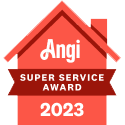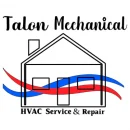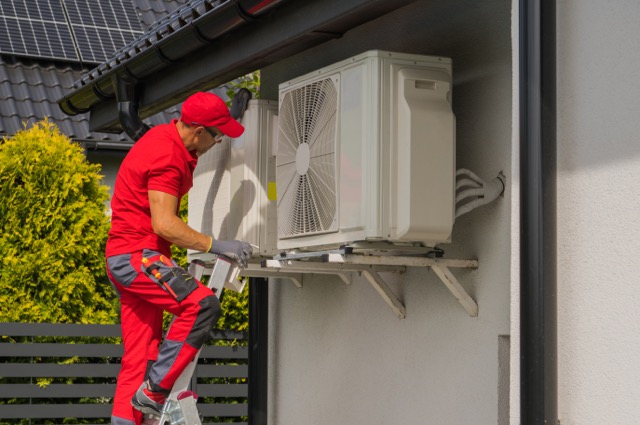The Hidden Costs of Neglecting Your HVAC System

Don't Put Off HVAC Maintenance
Your HVAC system is one of the most important components of your home. It keeps you cool in the summer, warm in the winter, and ensures that the air you breathe is clean and safe. However, like any other mechanical system, it requires regular maintenance to perform optimally. Skipping regular HVAC maintenance might save you some money in the short term, but over time, the hidden costs can add up significantly.
From skyrocketing energy bills to costly repairs and premature system replacement, the expenses associated with neglecting your HVAC system can far outweigh the price of routine upkeep. In this detailed blog post, we’ll break down the hidden costs of neglecting your HVAC system and why regular maintenance is a worthwhile investment.
Higher Energy Bills
One of the most immediate and noticeable effects of neglecting your HVAC maintenance is an increase in your energy bills. When your system is not properly maintained, it has to work harder to heat or cool your home, leading to inefficiency and higher energy consumption.
How Neglect Leads to Inefficiency:
- Dirty Filters: A clogged air filter restricts airflow, forcing your system to use more energy to circulate air throughout your home.
- Dirty Coils: Dust and debris on the evaporator or condenser coils can reduce heat exchange efficiency, making your system run longer to achieve the desired temperature.
- Leaky Ducts: Over time, ducts can develop leaks, allowing conditioned air to escape and reducing overall system efficiency.
The Long-Term Impact:
Neglecting these small maintenance tasks can cause a 5-15% increase in energy consumption. For example, if your monthly energy bill is $150, a 15% increase means an additional $22.50 per month. Over the course of a year, that’s an extra $270—money that could have been saved with a simple maintenance appointment.
Costly Repairs
Another significant hidden cost of neglecting your HVAC system is the increased likelihood of breakdowns and expensive repairs. Minor issues that could have been addressed during routine maintenance can escalate into major problems over time, requiring costly emergency fixes.
Examples of Costly Repairs:
- Compressor Replacement: One of the most expensive components to replace, a failed compressor can cost anywhere from $1,200 to $2,500, depending on your system.
- Refrigerant Leaks: Fixing a refrigerant leak and recharging the system can cost $200-$600 or more, especially for systems that use older refrigerants like R-22.
- Blower Motor Replacement: If the blower motor fails due to neglect, it can cost $400-$1,500 to replace.
Why Regular HVAC Maintenance Prevents Repairs:
Routine inspections and tune-ups allow technicians to catch minor issues, such as worn-out parts or low refrigerant levels, before they escalate into major repairs. Spending $100-$300 annually on maintenance can help you avoid thousands of dollars in repair costs down the line.
Reduced Efficiency and Comfort
An HVAC system that isn’t maintained properly won’t perform at its best. Reduced efficiency can lead to uneven heating or cooling, uncomfortable indoor temperatures, and poor airflow. Over time, this lack of comfort can make your living environment less enjoyable and may even drive you to spend money on temporary solutions like space heaters or fans.
How Neglect Impacts Comfort:
- Uneven Heating or Cooling: When components like fans or blowers aren’t working efficiently, you may notice that some rooms are too hot while others are too cold.
- Slow Temperature Changes: A neglected HVAC system may take longer to heat or cool your home, making it less responsive to your needs.
- Poor Air Circulation: Dust buildup, clogged filters, and dirty ducts can reduce airflow, leading to stuffy and uncomfortable indoor conditions.
The Hidden Costs of Reduced Comfort:
If your system is underperforming, you might end up overusing it to achieve the desired temperature, further driving up your energy bills. Additionally, poor air circulation can affect indoor air quality, leading to health issues that may require medical attention or air purifiers.
Shortened System Lifespan
HVAC systems are a significant investment, with a typical furnace or air conditioner costing thousands of dollars to replace. Neglecting regular maintenance can significantly shorten your system’s lifespan, forcing you to replace it much sooner than expected.
Average Lifespan of an HVAC System:
- Well-maintained HVAC systems typically last 15-20 years.
- Poorly maintained systems may fail within 10-12 years or even sooner.
Why Neglect Reduces Longevity:
- Increased Wear and Tear: When components aren’t cleaned, lubricated, or repaired regularly, they experience more wear and tear, leading to premature failure.
- Overworked Components: A dirty or inefficient system has to work harder to heat or cool your home, putting extra strain on key parts like the compressor and blower motor.
Replacement Costs:
Replacing an HVAC system can cost anywhere from $5,000 to $10,000 or more, depending on the size and complexity of the unit. Regular HVAC maintenance can extend the life of your system, delaying the need for replacement and saving you thousands of dollars.
Poor Indoor Air Quality
Neglecting your HVAC system can have a direct impact on the quality of the air in your home. A dirty system can circulate dust, pollen, mold, and other allergens, which can aggravate respiratory conditions and allergies. Poor indoor air quality is not only uncomfortable but can also lead to health-related expenses.
Common Issues That Affect Air Quality:
- Dirty Air Filters: Filters trap dust and allergens, but when they’re not replaced, they can become a source of contamination.
- Mold Growth: Neglected systems can develop moisture issues, leading to mold growth in ducts or on components like coils.
- Unclean Ducts: Dust and debris in ductwork can accumulate over time, reducing air quality and aggravating allergies.
The Hidden Costs of Poor Air Quality:
- Increased medical expenses due to respiratory issues or allergy flare-ups.
- Costs associated with purchasing air purifiers or professional duct cleaning services.
- Reduced productivity or missed workdays due to poor health caused by indoor air pollutants.
Safety Risks
Neglecting your HVAC system can pose serious safety risks, particularly for homes with gas furnaces or older systems. Routine maintenance ensures that your system is operating safely and reduces the risk of dangerous situations like carbon monoxide leaks or electrical fires.
Common Safety Hazards:
- Carbon Monoxide Leaks: A cracked heat exchanger in a gas furnace can release carbon monoxide, a colorless, odorless gas that can be deadly.
- Electrical Issues: Faulty wiring or worn-out electrical components can increase the risk of fires.
- Gas Leaks: Improperly maintained gas connections can lead to leaks, posing an explosion risk.
Preventing Safety Risks:
A professional HVAC technician will inspect key safety components, such as the heat exchanger, gas lines, and electrical connections, during routine maintenance. Investing in maintenance can protect your home and family from potentially life-threatening hazards.
Environmental Impact
An inefficient or poorly maintained HVAC system not only costs you money but also has a negative impact on the environment. Systems that consume excess energy contribute to higher greenhouse gas emissions, while refrigerant leaks can release harmful chemicals into the atmosphere.
The Role of Refrigerants:
Older HVAC systems often use refrigerants like R-22, which are being phased out due to their harmful effects on the ozone layer. Regular maintenance can ensure your system is properly charged and leak-free, reducing its environmental footprint.
The Hidden Costs of Environmental Neglect:
If your system leaks refrigerant or operates inefficiently, you may face additional costs such as:
- Fines or fees for non-compliance with environmental regulations.
- Higher energy bills due to wasted energy.
- Costs associated with upgrading to environmentally friendly systems.
Why Regular HVAC Maintenance is Worth the Investment
The hidden costs of neglecting your HVAC system can add up quickly, but regular maintenance is an affordable and effective way to avoid these expenses. Here are some of the key benefits of scheduling routine HVAC maintenance:
- Lower Energy Bills: A well-maintained system operates more efficiently, saving you money on energy costs.
- Fewer Repairs: Regular tune-ups help identify and address small issues before they escalate into costly repairs.
- Extended System Lifespan: Proper care can add years to the life of your HVAC system, delaying the need for replacement.
- Improved Comfort: Maintenance ensures consistent heating and cooling, better airflow, and higher indoor air quality.
- Enhanced Safety: Routine inspections reduce the risk of carbon monoxide leaks, electrical fires, and other hazards.
How to Start a Preventive HVAC Maintenance Routine
Establishing a regular HVAC maintenance routine is key to avoiding the hidden costs of neglect. The process is simple and ensures that your system remains in optimal condition year-round. Here’s how to get started:
Schedule Professional Maintenance Twice a Year
A biannual check-up is the foundation of preventive care. Schedule HVAC maintenance in the spring for your cooling system and in the fall for your heating system. Professional technicians will inspect, clean, and service critical components, ensuring your system operates efficiently and safely.
Replace Air Filters Regularly
Check and replace air filters every 1–3 months, depending on usage and your home’s environment. Clean filters improve airflow, enhance efficiency, and maintain good indoor air quality.
Inspect and Clean Vents and Ducts
Regularly check for blockages in vents and vacuum visible ducts to keep air moving freely. Professional duct cleaning every few years is also recommended to prevent buildup and allergens.
Monitor Energy Bills and System Performance
Keep an eye on energy costs and system behavior. Sudden spikes in bills or inconsistent performance may indicate a problem requiring professional attention.
By committing to a preventive maintenance routine, you can save money, avoid unexpected repairs, and enjoy peace of mind knowing your HVAC system is always ready to perform.
Invest in Routine HVAC Maintenance
Neglecting your HVAC system may seem like a way to save money in the short term, but the hidden costs can far outweigh the price of regular maintenance. From higher energy bills and frequent repairs to safety risks and poor indoor air quality, the consequences of skipping maintenance can impact your wallet, your comfort, and your health.
Investing in routine HVAC maintenance is the smart choice for homeowners who want to save money, extend the life of their system, and ensure a comfortable and safe living environment. Contact a professional HVAC technician today to schedule your maintenance and protect your home from the hidden costs of neglect.
A Top Rated HVAC Contractor





